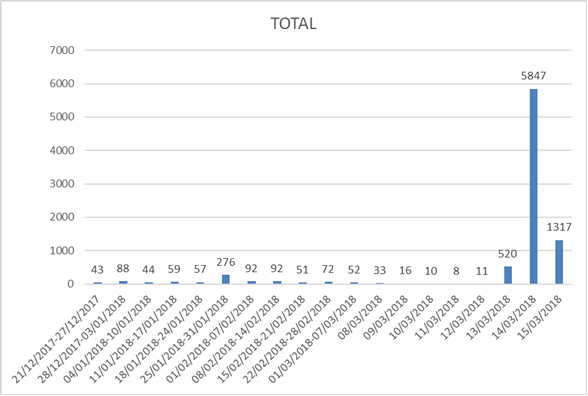Introductory remarks by Vice-President Dombrovskis at Citizens’ Dialogue in Sofia
Добър ден! Радвам се да разговарям с вас. [Hello. I am happy to discuss with you today].
I’m very grateful for this opportunity to have this discussion and also to listen how people in Bulgaria see the European Union and the challenges we face, because it’s important to constantly assess how we are doing, what is expected and can be improved, and how we can move forward.
And it is clear that Bulgaria wants to move forward. Its Presidency is steering the EU through now a vital couple of months. It is no coincidence that Bulgaria, your Presidency, stands for three very important “B”s: бъдеще[budeshte = future], budget and the Balkans, and we have important decisions to take in those areas, including indeed our future budget, the strengthening of the euro area, strengthening our Security Union and deepening our relations with our neighbouring countries, to name just a few.
One issue for Bulgaria is its membership of the euro area. And like the country where I come from, Latvia, we also asked this question after we went through a profound financial and economic crisis. We firmly opted for euro adoption, since we found it to be an anchor of economic and monetary stability. Eventually, we managed to go from crisis to euro accession in five years. Of course, it required engagement at all levels of government and ownership among social partners, among others. We had to overcome a number of fears and myths. We had to put in a lot of effort to ensure that prices are stable and do not rise as a result of euro introduction. And that is perfectly doable.
In fact, in economic terms, there are clear benefits of the euro area: it lowers barriers for businesses, it can reduce interest rates, it brings a positive impact on growth as a result of full integration into the single market, and stronger growth eventually leads to higher living standards in the country.
Politically too, euro membership puts countries at the very core of the European Union. So also through joining euro, Bulgaria will gain additional political influence.
As for the preparedness of Bulgaria, I would say the preconditions are there: since the inception of our single currency, the exchange-rate of the lev has been pegged to the euro; you can choose to have your bank savings in euro. So in many ways you are already with one foot in the euro area.
And the Commission is here to support you to get you with a second foot in the euro area as well. President Juncker has made it very clear: the EU wants to support countries in their efforts to join the euro area. We stand with Bulgaria with this and we are ready to help you get ready for this. One issue is political support. But we also offer a new ‘convergence facility’ or, in other words, technical and financial assistance to make the adjustments needed. So there we can help countries to prepare and then prosper once inside Eurozone.
On the assessment of Bulgaria’s readiness and we will publish our convergence report on 23rd of May. We see much strength in Bulgaria to have robust economic growth, way above EU average and solid fiscal policy, a balanced budget, one of the lowest public debt levels in the EU at 26% of GDP and going down, but of course there is still further work needed. For example, joining the euro also implies becoming part of the Banking Union, and in that sense there is further work in strengthening banking sector.
So to once again come back to my experience in joining the euro in Latvia, I can say that this road to the euro is maybe long and sometimes difficult. Sometimes it can be rocky. But it is a meaningful journey to make, because it mobilises minds and energy in the country to change it for the better and eventually to improve living standards of Bulgarians.
Thank you very much.
